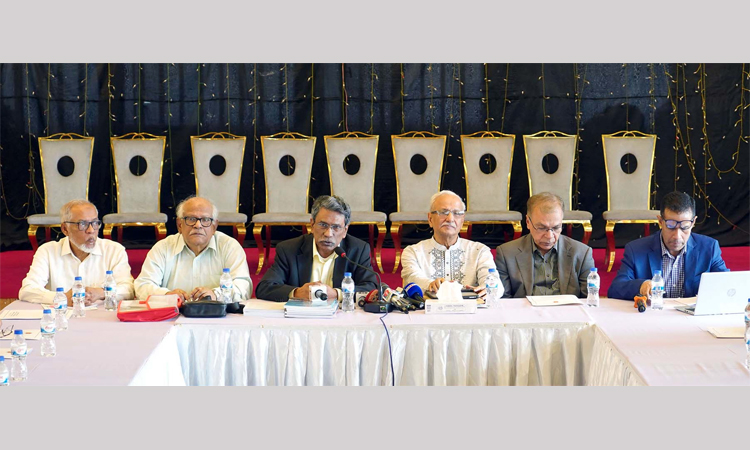News Flash

DHAKA, May 25, 2025 (BSS) - National Consensus Commission (NCC) Vice-Chairman Professor Ali Riaz today said people will soon be informed about key unresolved issues, including reforms to the state structure, in order to help them to ease their decision making process in future.
He made the remark while presiding over a discussion with members of civil society in the capital’s Krishibid Institution Bangladesh (KIB).
“Our main objective is to build consensus on fundamental and reform related issues as part of drafting the national charter,” said Ali Riaz.
He, however, said differences are inevitable due to diverse political and ideological stances of various political parties, and it is unrealistic to expect consensus on every issue.
“We will soon inform the people about the issues on which consensus could not be reached,” he added.
He went on, saying, “We believe that transparency is crucial in earning the people’s trust and ensuring their cooperation in future political decision-making. This principle has guided us every step of the way as we move forward.”
Ali Riaz emphasized that all are at a crucial turning point in history, which has brought tremendous opportunities. “However, challenges arrive with every opportunity, and the complexities of this moment are particularly demanding as we strive for institutional and structural reforms within the state framework—a formidable task,” he added.
Expressing optimism that society will seize this historic moment, he remarked, “We bear the burden of 53 years of national endeavors, 16 years of relentless struggle, and the sacrifices made—especially during the July-August mass uprising, marked by bloodshed and loss.”
"From that sense of duty and responsibility, we hope that everyone will make efforts from their respective positions to bring about as much structural change as possible," he expected, saying that, "We hope that the opinions shared by all present here today, as representatives of responsible citizens, will support and assist us."
Ali Riaz emphasized that reform must go hand in hand with consensus, noting that “without the active involvement of civil society, the reform process cannot progress.”
"As mentioned earlier, our goal is to formulate a National Charter. We will strive to ensure that the opinions shared here are reflected not only in the National Charter being developed but also in the report we aim to prepare alongside it," he added.
Commission members Dr Badiul Alam Majumder, Safar Raj Hossain, Dr Iftekharuzzaman and Dr Md Ayub Mia and Chief Adviser’s Special Assistant Monir Haider were present.
Led by Former Ambassador Humayun Kabir, civil society representatives - retired Supreme Court Appellate Division Justice Abdul Matin, security analyst Major General ANM Muniruzzaman, Professor Dr Giti Ara Nasrin, Professor Dr Syeda Sultana Razia, Professor Dr Samina Lutfa, Professor Dr Waresul Karim, Professor Dr. Mirza Hasan, BRAC University, Ashrafun Nahar Mishti, President of Puja Udjapan Parishad Basudeb Dhar, and human rights activist Ilira Dewan joined the discussion.